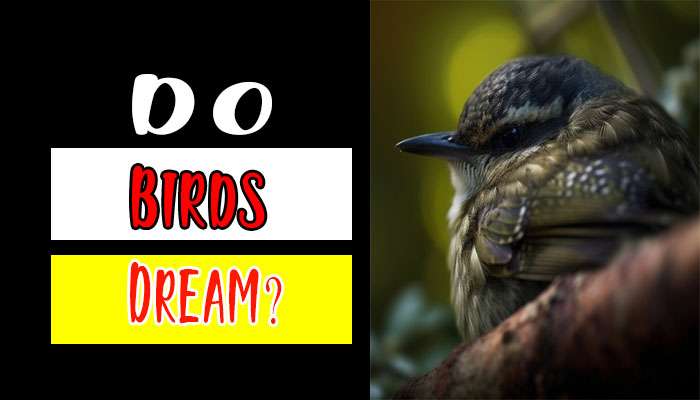Can You Eat All Bird Eggs? Find Out Here
Hello there, fellow bird enthusiasts! If you’re as passionate about our feathered friends as I am, you’ve probably wondered at some point: can you eat all bird eggs? Well, you’ve come to the right place. As a bird expert and avid bird lover, I’m here to explore this fascinating topic in detail.
In this blog post, we’ll delve into the types of bird eggs, their nutritional value, health benefits, culinary uses, ethical considerations, legal restrictions, cultural significance, health concerns, and even rare and exotic bird eggs. So, get ready to spread your wings of knowledge as we embark on this egg-citing journey!
Types of Bird Eggs

Birds come in all shapes, sizes, and species, and so do their eggs. Each type of bird lays eggs that are unique in appearance, size, and characteristics. From the tiny hummingbird to the majestic ostrich, here are some of the intriguing types of bird eggs you might encounter:
See Also: Can You Eat a Hummingbird?
1. Small Marvels: Songbird Eggs
Songbirds, known for their melodious tunes, lay some of the most delicate eggs. These eggs are usually small, colorful, and adorned with intricate patterns. Examples include robin eggs and bluebird eggs.
2. Nature’s Blue Gem: The Robin Egg
Speaking of robin eggs, they are a true marvel of nature. These stunning, sky-blue eggs are instantly recognizable and have captured the hearts of birdwatchers worldwide.
3. Size Matters: Ostrich Eggs
We have the colossal ostrich eggs on the opposite end of the spectrum. These behemoths can weigh up to 3.3 pounds (1.5 kilograms) and are the largest bird eggs in the world. Imagine making an omelet with one of these!
4. Speckled Wonders: Pheasant Eggs
Pheasants are known for their striking plumage, but their eggs are equally remarkable. These eggs are often speckled and come in a range of earthy tones.
5. Camouflage Experts: Waterfowl Eggs
Like ducks and geese, waterfowl have adapted to their environment by laying eggs that blend seamlessly with their surroundings. This remarkable camouflage helps protect their precious eggs from predators.
Nutritional Value

Now that we’ve covered the diverse range of bird eggs, let’s discuss their nutritional value. Bird eggs are not only a symbol of life but also a powerhouse of nutrients. Here’s a breakdown of the essential nutrients you can find in bird eggs:
Protein Punch
Bird eggs are an excellent source of high-quality protein. They contain all the essential amino acids the human body needs, making them an ideal choice for those looking to boost their protein intake.
Vitamin Rich
Eggs are a vitamin treasure trove. They are particularly rich in vitamins B12, D, and riboflavin. These vitamins are crucial in maintaining good health, from promoting bone strength to supporting red blood cell production.
Mineral Marvels
Bird eggs are also packed with essential minerals such as iron, phosphorus, and selenium. Iron is vital for oxygen transport in the body, phosphorus supports bone health, and selenium acts as a powerful antioxidant.
Healthy Fats
Contrary to popular belief, bird eggs contain healthy fats, including omega-3 fatty acids. These fats are known for their heart-protective properties and can contribute to overall well-being.
Health Benefits
Now that we’ve established the nutritional value of bird eggs, let’s dive into the health benefits of including them in your diet:
1. Muscle Building
As mentioned earlier, bird eggs are a rich source of protein. Whether you’re an athlete or simply aiming to maintain muscle mass, including eggs in your diet can help you achieve your protein goals.
2. Brain Power
The vitamins and minerals in bird eggs, especially B vitamins, are essential for brain health. They support cognitive function and help keep your memory sharp.
3. Strong Bones
Vitamin D and phosphorus, found in bird eggs, are vital in maintaining strong and healthy bones. Regular consumption can help prevent conditions like osteoporosis.
4. Eye Health
Bird eggs contain antioxidants like lutein and zeaxanthin, which benefit eye health. They may reduce the risk of age-related macular degeneration and cataracts.
Culinary Uses
Bird eggs aren’t just nutritious but also incredibly versatile in the kitchen. Here are some popular culinary uses for bird eggs:
1. Breakfast Classics
Eggs are a breakfast staple worldwide. Whether you prefer scrambled, fried, or poached, they make for a delicious morning meal.
2. Baking Wonders
Eggs are crucial in baking, providing structure, moisture, and flavor to a wide range of sweet and savory treats.
3. Salads and Sandwiches
Hard-boiled eggs add protein and creaminess to salads and sandwiches, making them more satisfying and nutritious.
4. Exotic Delicacies
In various cultures, bird eggs are considered delicacies. Balut, a fertilized duck egg, is a famous example. It’s enjoyed as a street food in some Asian countries.
Can You Eat All Bird Eggs?

Almost all bird eggs are edible. There are two known exceptions:
- The eggs of the hooded pitohui and ifrita kowaldi are two birds found in New Guinea. These birds are poisonous, and their eggs are also toxic.
- The eggs of some endangered or protected bird species. It is illegal to collect and eat these eggs.
Otherwise, bird eggs are a nutritious and delicious food source. They are a good source of protein, vitamins, and minerals. Different bird eggs have different flavors and textures, so there is something for everyone to enjoy.
Some of the most popular edible bird eggs include:
- Chicken eggs
- Duck eggs
- Goose eggs
- Quail eggs
- Turkey eggs
- Ostrich eggs
These eggs can be eaten in various ways, including fried, boiled, scrambled, poached, and baked. They can also be used to make other dishes, such as omelets, quiches, and cakes.
Legal Restrictions
Now that we’ve briefly touched on legal restrictions, let’s delve deeper into the subject. Legal regulations regarding bird egg consumption can be complex and vary widely. Here are some key points to keep in mind:
1. Protected Species
Many countries have laws protecting the eggs of certain bird species, especially those endangered or vulnerable. Collecting or consuming eggs from these birds can result in hefty fines and even jail time.
2. Licensing
In some cases, obtaining a license or permit may allow individuals or researchers to collect and study bird eggs. These permits are usually issued for scientific or conservation purposes.
3. Conservation Efforts
Conservation organizations work tirelessly to protect bird populations and their habitats. Supporting these efforts is crucial to ensure the continued existence of various bird species.
Cultural Significance
Bird eggs hold cultural significance in many societies around the world. They are often associated with traditions, symbolism, and rituals. Let’s explore a few examples:
1. Easter Eggs
In Christian traditions, eggs symbolize rebirth and resurrection, making them integral to Easter celebrations.
2. Aboriginal Traditions
Indigenous cultures, such as the Australian Aboriginals, have rich traditions involving the use of emu and crocodile eggs in ceremonies and art.
3. Omens and Beliefs
In some cultures, bird eggs are believed to possess mystical properties and are used in divination and spiritual practices.
Health Concerns
While bird eggs are a nutritious and delicious food source, there are some health concerns to be aware of:
1. Allergies
Egg allergies are relatively common, especially in children. Individuals with egg allergies should avoid consuming bird eggs to prevent adverse reactions.
2. Contamination
As with any food product, there is a risk of contamination with harmful bacteria like Salmonella. Proper cooking and handling of eggs can minimize this risk.
3. Cholesterol Content
Bird eggs are high in dietary cholesterol. While research on the impact of dietary cholesterol on heart health is ongoing, individuals with specific health concerns should consult with a healthcare professional.
Read More: Can You Move a Bird’s Nest Successfully?
Rare and Exotic Bird Eggs
For those with a taste for the extraordinary, rare, and exotic bird, eggs can be a culinary adventure like no other. These eggs are not your everyday supermarket fare; they are unique and often have a hefty price tag. Here are a few examples:
1. Quail Eggs
Quail eggs are smaller than chicken eggs but pack a rich and distinct flavor. They are a delicacy in many parts of the world and are often used in gourmet cuisine.
2. Emu Eggs
Emu eggs are huge and have a deep green color. They are considered a delicacy in Australia and are known for their rich, slightly gamey taste.
3. Caviar
Believe it or not, caviar is essentially the eggs of sturgeon, a prehistoric fish. It’s one of the most sought-after and expensive delicacies globally, often associated with luxury and indulgence.
Frequently Asked Questions
Can you eat eagle eggs?
No, it is illegal and highly unethical to eat eagle eggs. Eagles are protected under various wildlife conservation laws, and disturbing their nests or eggs can result in severe penalties.
Are all bird eggs safe to eat?
Not all bird eggs are safe to eat. It depends on the species and the legal regulations in your region. Some bird eggs are protected by law, while others are considered delicacies in certain cultures.
What are the healthiest bird eggs to eat?
Chicken eggs are among the healthiest and most widely consumed bird eggs. They are rich in protein, vitamins, and minerals. However, quail and duck eggs also offer unique nutritional profiles and are enjoyed in various cuisines.
Conclusion
In conclusion, the world of bird eggs is as diverse as the avian species. While some eggs are delicacies fit for a gourmet feast, others are protected by law and should be left undisturbed. Always prioritize ethical and legal considerations when considering whether you can eat bird eggs.
And remember, whether you’re enjoying a classic omelet or indulging in a rare delicacy, bird eggs offer a world of culinary possibilities for those who appreciate their unique qualities.




